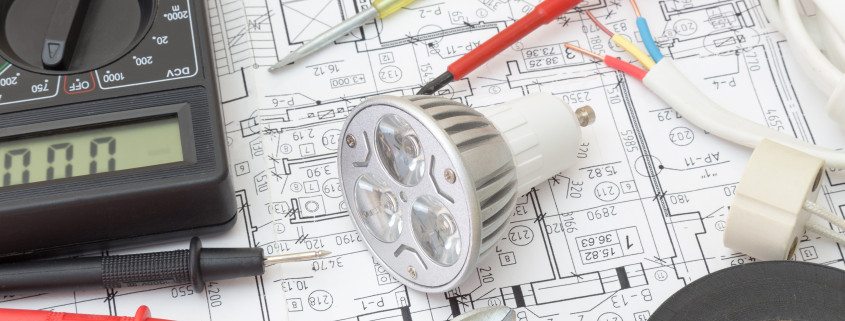Best Ways to Reduce Energy Consumption for your Business
If you own or run a business, whether you have implemented energy upgrades or not, you are likely to always be on the lookout for ways to save money on business expenses. When you reduce energy consumption in any way, not only does that save you money on your bill, but it reduces the stress and usage on your systems. And if you have installed energy-saving and green upgrades, you’re already on the road to saving money, so why not make the best use of your upgrades and follow these tips to save even more?
Monitor Usage
First and foremost, you need to know how much electricity your building is using in order to know where you can cut back. Some things are obviously necessary for day-to-day use, such as lighting, heat/AC, etc. But each area will have ways that you can ensure that you’re not wasting electricity. Energy Star has a program called Portfolio Manager that allows you to enter your energy usage numbers from utility bills, converting it into energy per square foot used in one year. When the resulting number is low, it means your building has good energy performance; consequently, if it is high, you’ll have areas in which you can improve usage. Once you have the number, you can compare it with numbers for other similar buildings and see where yours falls.
Another beneficial tool is a building energy management system, which is a bit of an investment initially, but it will make it much easier for you monitor and reduce energy usage in your building. The platform connects all energy systems in the building, allowing you to monitor their usage from anywhere using your smartphone or tablet. It shows you a detailed analysis of each system’s use, including peak usage times and real-time numbers. This platform is especially beneficial if you’re considering energy upgrades for your business, as it will show you the systems and areas with the most usage and which upgrades would save you the most money. However, if you’ve already done some upgrades, the platform is still highly beneficial. It’s always a good idea to monitor usage and see where some can be cut back.
Energy Consultant
An energy consultant can be beneficial for a business, especially if you have a large building. Energy consultants will come in and analyze usage, performing an audit and reviewing past bills to see high areas of usage and peak times, etc. The consultant works much like the automated energy management system, except that he or she will then discuss the building’s usage with you and formulate a plan for reducing costs and consumption, suggesting areas that can be improved by upgrades. He or she will also give you tips on how to prevent energy waste, such as encouraging employees to turn lights off and unplug appliances or electronics when not in use. This little act could potentially go a long way in providing a good number in their company’s time tracking software, eventually rewarding the employee. Think of the energy consultant like a teacher, evaluating your business’s energy use and teaching you where it can be improved. This can go hand-in-hand with the building energy management system with which you can monitor usage from your phone or tablet; it is just an extension of what the consultant has taught you. Enlisting the help of a consultant is likely a one-time thing, whereas the management platform is an ongoing tool to help you make the best use of the information and upgrades that the consultant recommended.
Another thing an energy consultant can help with is helping you shop for the best rates with energy suppliers. While you would likely need to do a lot of research in order to find out even half of the information available on suppliers, the energy consultant should have all the knowledge of supplier options and assist you in finding the best rates and contract terms for your particular business.
Demand Reduction and Demand Response
Once you are set up with the best energy rates and a way to monitor usage, you can look into ways to use less energy by reducing peak demand for your business. In order to be able to do this, you need to know your peak energy usage times, which you will already have discovered during the energy audit with the consultant or by using your management system. For example, if your business uses a lot of large equipment that you power on all at the same time every day, your energy demand can be reduced by staggering the times that you turn on the equipment. Once your peak demand is reduced, your cost will be lowered.
Demand response works in a similar way, except that a demand response program involves reducing your business’s energy consumption during times of high demand on the grid. When energy demand is high and the supply is low, utility companies raise their rates and will even pay their users to reduce their consumption. When a business returns some of their electricity back to the grid, it helps prevent blackouts and brownouts in addition to increasing revenue for the business. Large buildings that are able to switch to backup generators in times of high demand can receive up to $200,000 per year depending on the amount of power the business is able to return, which is determined by analysis. Not only does a demand response program give your business additional money, it helps other businesses in the area and prevents blackouts, so it’s a win-win.
Upgrades
Of course, sustainable energy upgrades for your business are a logical way to save money as well. By installing even one upgrade, such as solar panels, you are making your building that much less reliant on utility companies and more self-sustaining. Energy upgrades pay for themselves in just a few short years. Besides, even small upgrades such as LED lighting will save on costs, especially when combined with updated fixtures and solar energy power. Once the upgrades are installed, your energy management system will help you make the best use of them when you see just how and when everything is being used. If you look at the big picture, all of these things combined will help you streamline your energy consumption and usage while saving money and even possibly producing returns.
When you own and operate a business, energy is a big issue that will be at the forefront of your mind. If you follow even one of these tips for monitoring and reducing energy usage, it will make your life easier in addition to saving your business money. While they may require up-front investments, you know as a business owner that you have to spend money in order to make it; therefore, keep that in mind in relation to your energy bills and think of the money and electricity you’ll save in the long run.
Walker Reid Strategies specializes in energy efficiency with a focus on 179D deductions and 45L tax credits for businesses and individuals. We partner with energy and tax organizations to educate and advise the public on strategies for energy efficiency and related deductions and benefits. Contact us directly for questions or information.



